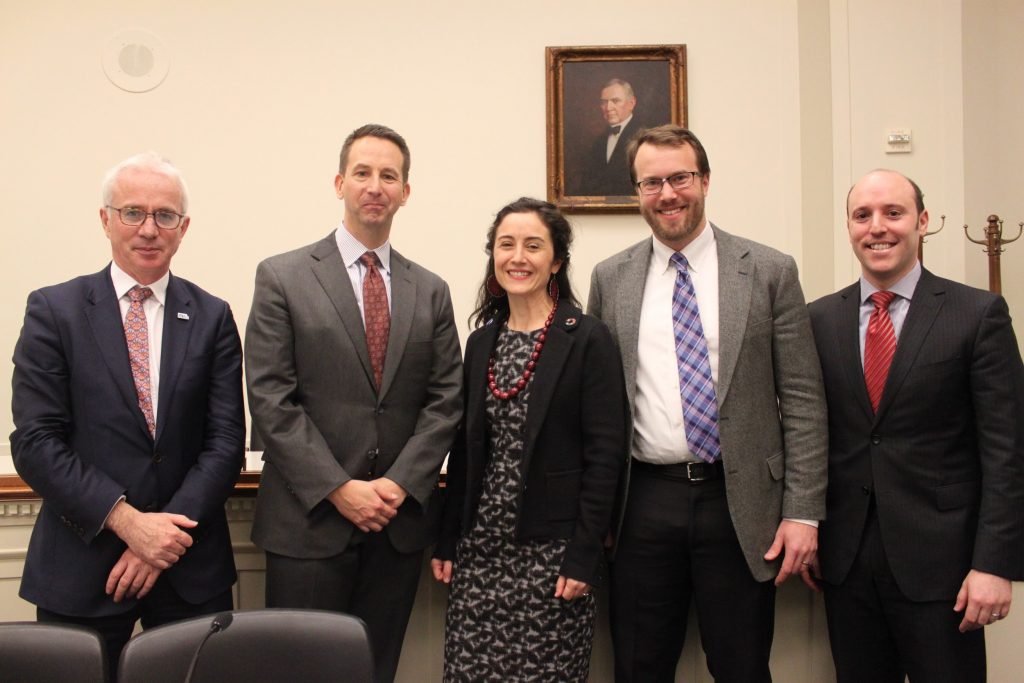
Panelists Peter Sands, Dr. Ken Staley, Margaret Reilly McDonnell, and Phillip Welkhoff with moderator Josh Blumenfeld prior to “U.S. Leadership in the Fight Against Malaria.”
Panelists Peter Sands, Dr. Ken Staley, Margaret Reilly McDonnell, and Phillip Welkhoff with moderator Josh Blumenfeld prior to “U.S. Leadership in the Fight Against Malaria.”
As the largest government donor to the malaria fight, U.S. leadership is key to eradicating one of the oldest and deadliest diseases known to man.
U.S. Global Malaria Coordinator Dr. Ken Staley addressed U.S. supported successes and strategies during a briefing on Wednesday, Feb. 13, in the Rayburn House Office Building. He was joined on the panel by Peter Sands, executive director of the Global Fund to End AIDS, Tuberculosis, and Malaria; Phillip Welkhoff, director of malaria at the Bill and Melinda Gates Foundation; and Margaret Reilly McDonnell, executive director of the UN Foundation’s Nothing But Nets.
“One of the hallmarks of our efforts is that we’re working together, each with a comparative advantage and trying to make use of it,” Dr. Staley said.
He went on to identify PMI as having great technical expertise and people in the field to distribute commodities purchased by U.S. taxpayers; the Global Fund’s advantage being financing, grantmaking and supply chain; and the Gates Foundation financing early stage innovation.
Staley shared that since July 2018, PMI, the Global Fund and the Gates Foundation have been working to aggregate and homogenize each entities’ data and share it with countries while ramping up data collection efforts in order to more quickly and more precisely drive down the malaria burden with fewer resources.
Staley compared this to the baseball team’s Oakland A’s use of data to win with the least amount of money, as portrayed in the book and film “Moneyball.” “So it was with baseball, so it is with malaria now,” he said.
Sands and Welkhoff echoed the importance of data in their remarks.
Another theme that emerged was the transformational benefit of ridding communities of malaria. Welkhoff said that when malaria goes down, other deaths go down as it becomes easier for people can fight off the other diseases such as pneumonia when they are not weakened by malaria. Sands touched on the health systems that are built and strengthened in an effort to address malaria and then are already in place to deal with new threats.
“We know our goal of wiping malaria from the face of the earth is attainable,” Dr. Staley said. “If we think about smallpox eradication, that is us going to the moon. If we think about malaria eradication, it’s a bit like us going to Mars. It can be one of the most tremendous public health achievements in our lifetimes.”
The event was hosted by Nothing But Nets, Malaria No More, Friends of the Global Fight, PATH, and the Association for Tropical Medicine and Hygiene.
